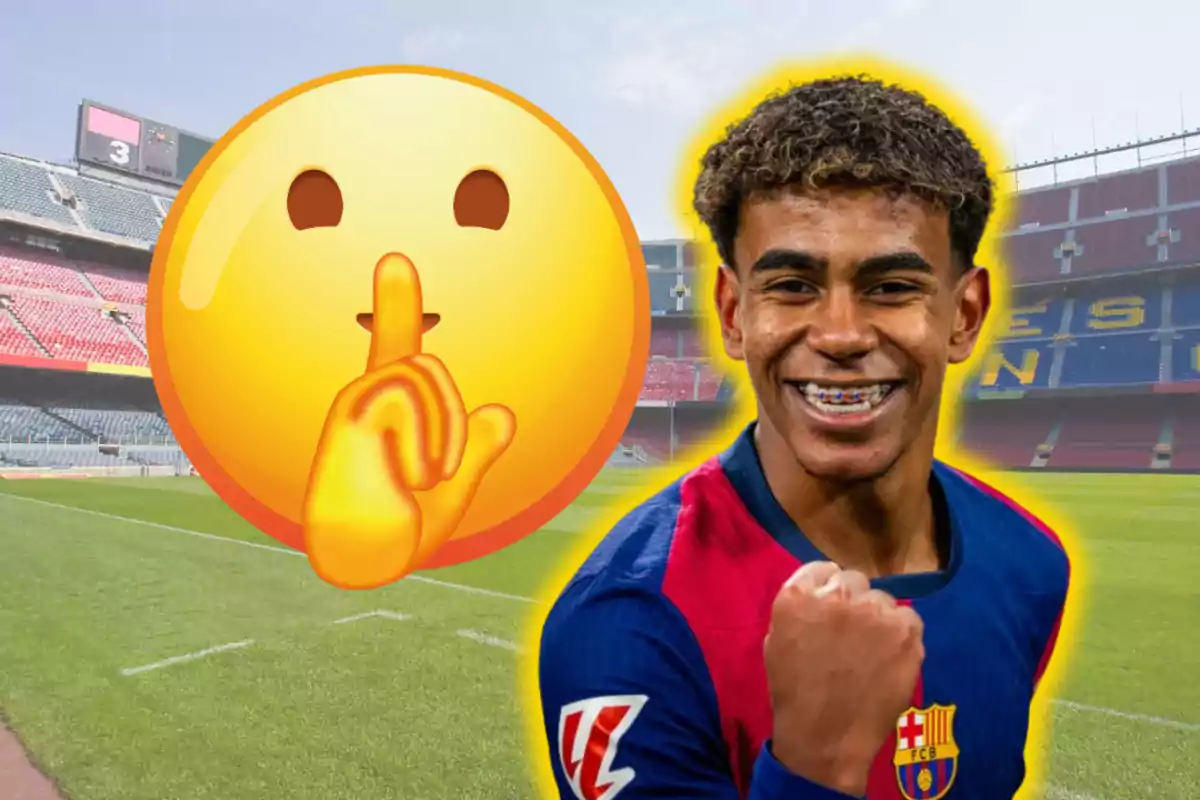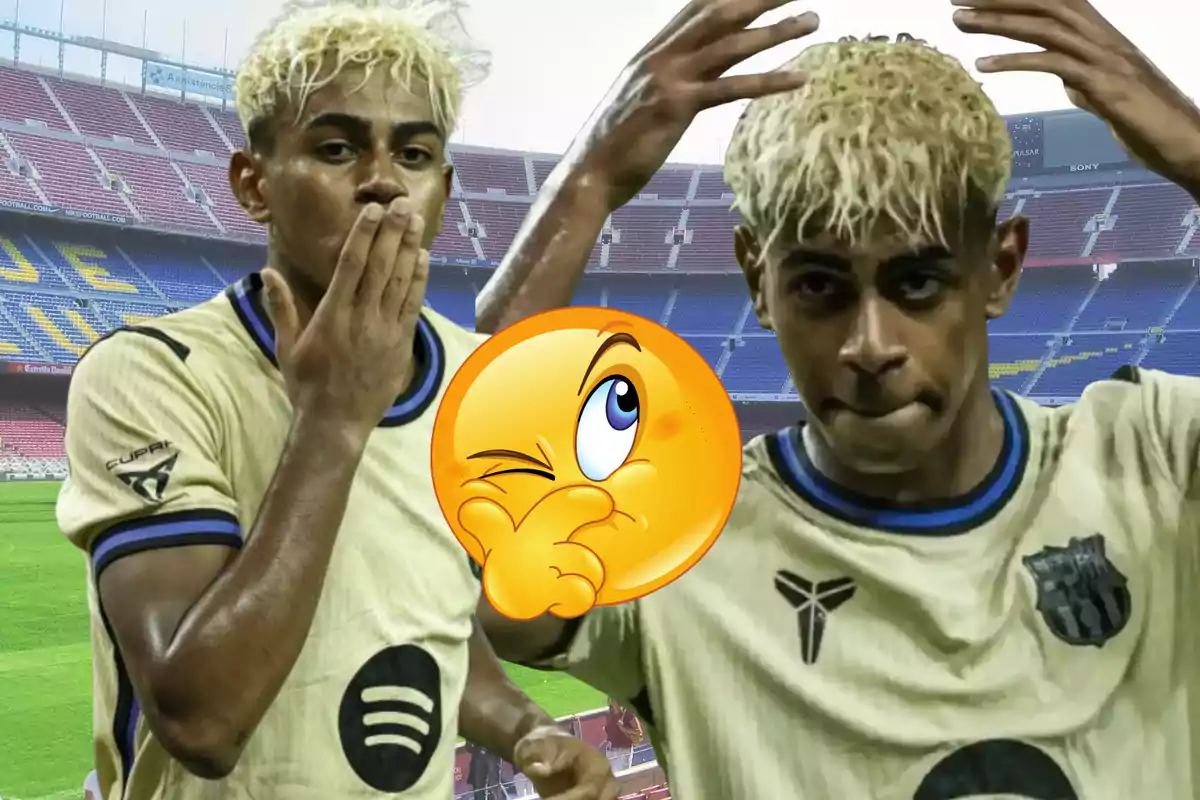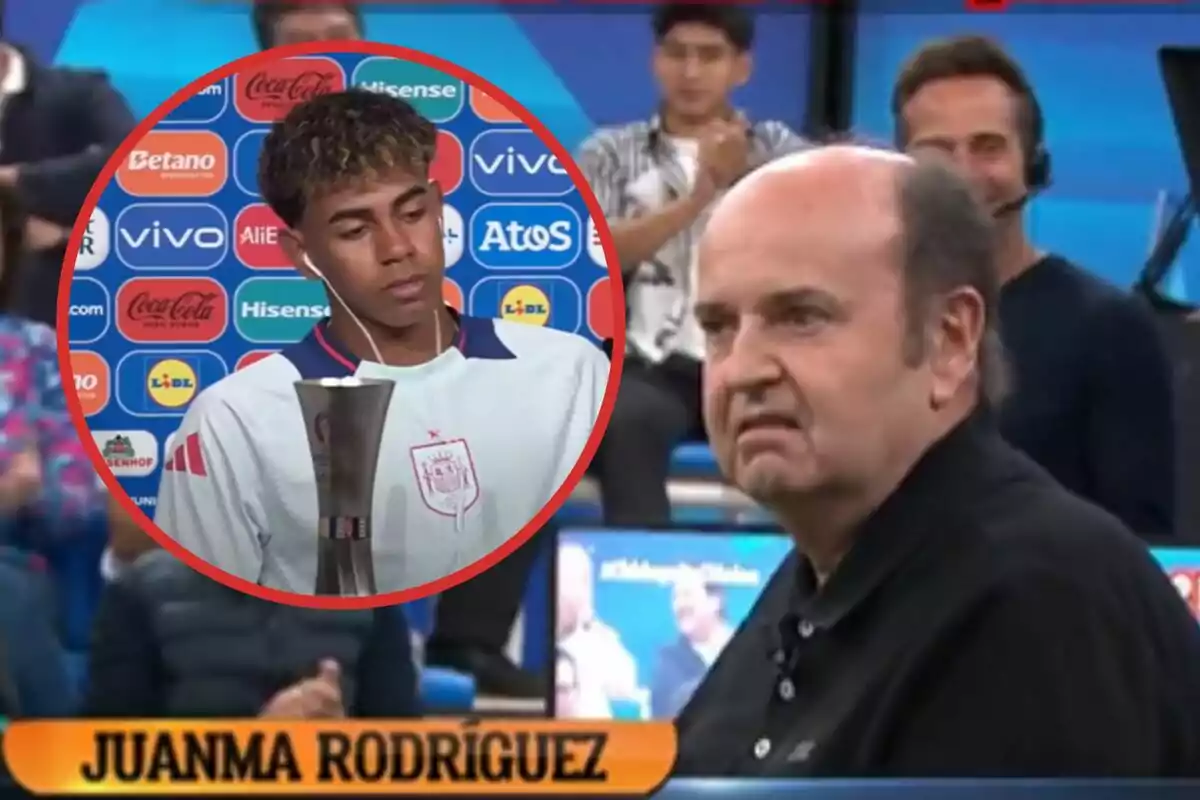Juanma Rodríguez's statements about Lamine Yamal have sparked controversy. El Chiringuito's contributor didn't hesitate to point to the young Barça talent as a problem within the locker room. His words were not only harsh, but also conveyed a personal desire for the player to do poorly.
He also added that he was convinced his story would end badly, and that he would even be glad about that outcome. This isn't the first time the panelist has used his platform to launch excessive attacks against Barcelona footballers. His speech seems more aimed at provoking easy headlines than at providing a serious soccer analysis.
A young man under constant scrutiny
Lamine Yamal is only 18 years old and already bears enormous pressure. His early breakthrough put him in the media spotlight and every gesture is scrutinized. It can't be denied that his private life generates headlines, but reducing everything to matters of ego is unfair and simplistic.

Meanwhile, Barça is aware of the media noise surrounding its star. Hansi Flick called for calm and teamwork after the draw against Rayo. However, some sectors interpreted his message as a direct criticism of the young academy player. Juanma Rodríguez took advantage of that forced interpretation to fuel the controversy.
Criticism bordering on persecution
Sports journalism should point out mistakes with soccer arguments, not with personal attacks. What is concerning is that Rodríguez not only criticized, but also expressed joy at the player's possible failure. That kind of comment feeds a toxic narrative that benefits no one.

Many fans end up believing that Lamine is a problematic footballer. But the facts show the opposite: on the field he keeps a professional and committed attitude. He has been decisive in important matches and hasn't shown signs of disconnecting from the project.
The memory of other precedents
This case is reminiscent of other young talents who were victims of media excess. Footballers like Ansu Fati or Bojan Krkic suffered similar narratives that affected their careers. The fear at Camp Nou is that external pressure will end up weighing too much on Lamine. That's why the club tries to shield him.
Rodríguez called Lamine a "time bomb". Rodríguez's comments don't help in this process. Quite the opposite: they put the player at the center of an unnecessary storm. This is a boy who is still growing, who must make mistakes and learn from them. Demonizing him prematurely only favors those who enjoy seeing young talents fall.
The need for more responsible journalism
Journalism should accompany the development of players with constructive criticism. Pointing out ego problems can make sense if it's supported by clear and verified facts. But publicly rejoicing over a possible failure is harmful and irresponsible.
Lamine himself has chosen to keep silent and focus on playing. This is a smart strategy that avoids feeding the television spectacle. His response is in the goals, the assists, and the magic on the field. That's where he must keep showing why he's one of the greatest talents in world soccer.
Attacking for the sake of attacking isn't journalism
Juanma Rodríguez's criticism shows how part of journalism has become a spectacle. Provocation is prioritized over real soccer analysis. In Lamine's case, that attitude is even more unfair because we're talking about a player who is still developing.
Barça needs to protect him and Spanish soccer should celebrate him, not bring him down. Rodríguez should reflect, because his message adds nothing but noise.

